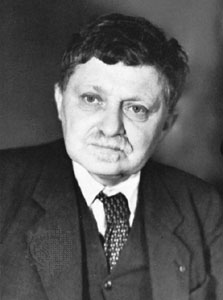A Quote by Madeleine L'Engle
It does not matter that we cannot fathom this mystery. The only real problem comes when we think that we have.
Related Quotes
You know how it always is, every new idea, it takes a generation or two until it becomes obvious that there's no real problem. It has not yet become obvious to me that there's no real problem. I cannot define the real problem, therefore I suspect there's no real problem, but I'm not sure there's no real problem.
If death disappears there will be no mystery in life. That's why a dead thing has no mystery in it, a corpse has no mystery in it, because it cannot die anymore. You think it has no mystery because life has disappeared? No, it has no mystery because now it cannot die anymore. Death has disappeared, and with death automatically life disappears. Life is only one of the ways of death's expression.
In other words, the real problem is not exterior. The real problem is interior. The real problem is how to get people to internally transform, from egocentric to sociocentric to worldcentric consciousness, which is the only stance that can grasp the global dimensions of the problem in the first place, and thus the only stance that can freely, even eagerly, embrace global solutions.
Today, when people say they cannot believe, it is not a mental problem; it is a matter of the will of the heart- they do not want to believe. Some say they have certain 'mental reservations,' mental hurdles which they cannot get over. My friend, your mind is not big enough to take even one little hurdle. The problem is never in the mind but in the will. There is sin in the life, and a man does not want to turn to God; he does not want to believe Him.
In matter-ism (materialism), there can be nothing wrong with the world since there is no right way for the world to be in the first place. Everything is just matter in motion and that's that. In Mind-ism (monism) there's a different route to the same problem. There cannot be a problem of evil, even in principle, since in Mind-ism even morality is maya; illusion. In neither story, then (if we're to be consistent with their principles), can the issue of evil be raised. But in real life the problem comes up all the time. That's the difficulty.
I believe in mystery and, frankly, I sometimes face this mystery with great fear. In other words, I think that there are many things in the universe that we cannot perceive or penetrate, and that also we experience some of the most beautiful things in life only in a very primitive form. Only in relation to these mysteries do I consider myself to be a religious man.
When you're training as an actor, a lot of the big work you're learning is to treat fictional characters like real people. You don't have the problem of discovering a backstory with real people, but there's always a mystery which is common to both fictional and factual characters. They are never quite the person you think they are.
Intuitionists think that there are cases in which, say, some identity statement between real numbers is neither true nor false, even though we know that it cannot possibly be false. That is: We know that it cannot not be that a = b, say, but we cannot conclude that a = b. We can't, in general, move from not-not-p to p in intuitionistic logic. , I suggest that the believer in vague objects should say something similar. It can never be true that it is vague whether A is B. But that does not imply that there is always a fact of the matter whether A is B.




































